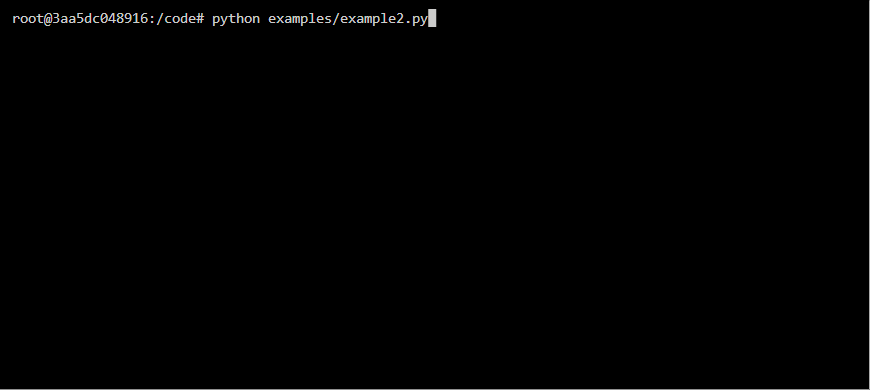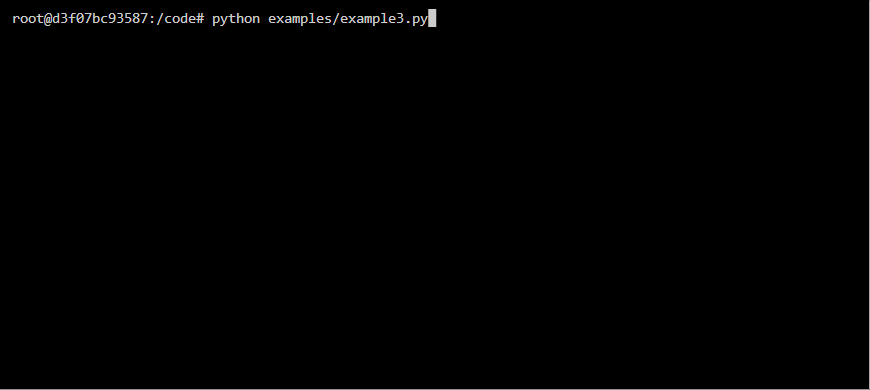
Research
Security News
Malicious npm Package Targets Solana Developers and Hijacks Funds
A malicious npm package targets Solana developers, rerouting funds in 2% of transactions to a hardcoded address.
The mppbar module provides a convenient way to scale execution of a function across multiple input values by distributing the input across a number of background processes, it displays the execution status of each background process using a progress bar.
The MPpbar class is a subclass of MPmq and the primary benefit of using mppbar is that the function being scaled requires minimal modification (if at all) since the multiprocessing and progress bar are completely abstracted. The progress bar is initialized and updated through the interception and processing of the messages logged within the function. The log messages in the function must use f-string style formatting.
pip install mppbar
MPpbar classMPpbar(function, process_data=None, shared_data=None, processes_to_start=None, regex=None, **kwargs)
function- The function to execute. It should accept two positional arguments; the first argument is the dictionary containing the input data for the respective process seeprocess_databelow, the second argument is the shared dictionary sent to all proceses seeshared_databelow.
process_data- A list of dictionaries where each dictionary describes the input data that will be sent to the respective process executing the function; the length of the list dictates the total number of processes that will be executed.
shared_data- A dictionary containing arbitrary data that will be sent to all processes.
processes_to_start- The number of processes to initially start; this represents the number of concurrent processes that will be running. If the total number of processes is greater than this number then the remaining processes will be queued and executed to ensure this concurrency is maintained. Defaults to the length of theprocess_datalsit.
regex- A dictionary whose key values are regular expressions fortotal,countandalias. The regular expressions will be checked against the log messages intercepted from the executing function, if matched the value will be used to assign the attribute for the respective progress bar. Thetotalandcountkey values are required, thealiaskey value is optional. The defaultregexis:
{
'total': r'^processing total of (?P<value>\d+) items$',
'count': r'^processed .*$',
'alias': r'^worker is (?P<value>.*)$'
}
**kwargs- Pass through any other supported ProgressBar keyword argument, refer to progress bar for supported arguments.
execute(raise_if_error=False)
Start execution the process’s activity. If
raise_if_erroris set to True, an exception will be raised if the function encounters an error during execution.
Distribute work across multiple processes with all executing concurrently, each displays a progress bar showing its execution status. Uses default regex for assigning progress bar attributes.
import time, random, logging
import names
from mppbar import MPpbar
logger = logging.getLogger(__name__)
def do_work(data, *args):
# log our intentions - messages will be intercepted as designated by MPpbar regex
logger.debug(f'worker is {names.get_last_name()}')
total = data['total']
logger.debug(f'processing total of {total} items')
for index in range(total):
# simulate work by sleeping
time.sleep(random.choice([.1, .2, .4]))
logger.debug(f'processed item {index}')
return total
def main():
# designate 6 processes total - each getting a different total
process_data = [{'total': random.randint(8, 16)} for item in range(6)]
print(f'>> Processing items using {len(process_data)} workers ...')
pbars = MPpbar(function=do_work, process_data=process_data, timeout=1)
results = pbars.execute()
# add up totals from all processes
print(f">> {len(process_data)} workers processed a total of {sum(result for result in results)} items")
if __name__ == '__main__':
main()

Distribute work across multiple processes but only a subset are executing concurrently, each displays a progress bar showing its execution status. Useful if you can only afford to run a few processes concurrently. Uses custom regex for assigning progress bar attributes.
import time, random, logging
import names
from mppbar import MPpbar
logger = logging.getLogger(__name__)
def do_work(data, *args):
# log our intentions - messages will be intercepted as designated by MPpbar regex
logger.debug(f'processor is {names.get_last_name()}')
total = data['total']
logger.debug(f'processing total of {total}')
for index in range(total):
# simulate work by sleeping
time.sleep(random.choice([.1, .2, .4]))
logger.debug(f'processed item {index}')
return total
def main():
# designate 6 processes total - each getting a different total
process_data = [{'total': random.randint(8, 16)} for item in range(6)]
# supply custom regex to intercept and set values for total count and alias
regex = {
'total': r'^processing total of (?P<value>\d+)$',
'count': r'^processed item \d+$',
'alias': r'^processor is (?P<value>.*)$',
}
# designate fill factor for total - to make progress bar look nicer
fill = {
'max_total': 100
}
print(f'>> Processing items using {len(process_data)} workers ...')
# set concurrency to 3 - max of 3 processes will be running at any given time
pbars = MPpbar(function=do_work, process_data=process_data, regex=regex, fill=fill, processes_to_start=3, timeout=1, show_fraction=False)
results = pbars.execute()
# add up totals from all processes
print(f">> {len(process_data)} workers processed a total of {sum(result for result in results)} items")
if __name__ == '__main__':
main()

Distribute alot of work across a small set of processes using a thread-safe queue, each process gets work off the queue until there is no more work, all processes reuse a progress bar to show its execution status. Useful if you have alot of data to distribute across a small set of processes.
import time, random, logging
from multiprocessing import Queue
from queue import Empty
import names
from mppbar import MPpbar
logger = logging.getLogger(__name__)
def do_work(total):
# log our intentions - messages will be intercepted as designated by MPpbar regex
logger.debug(f'worker is {names.get_last_name()}')
logger.debug(f'processing total of {total} items')
for index in range(total):
# simulate work by sleeping
time.sleep(random.choice([.001, .003, .005]))
logger.debug(f'processed item {index}')
return total
def prepare_queue():
# create queue to add all the work that needs to be done
queue = Queue()
for _ in range(75):
queue.put({'total': random.randint(100, 150)})
return queue
def run_q(data, *args):
queue = data['queue']
result = 0
while True:
try:
# get work from queue
total = queue.get(timeout=1)['total']
# process the work
result += do_work(total)
# this allows us to reset progress bar
logger.debug('reset-mppbar')
except Empty:
logger.debug('reset-mppbar-complete')
break
return result
def main():
queue = prepare_queue()
# designate 3 processes total - each getting reference to the queue
process_data = [{'queue': queue} for item in range(3)]
print(f'>> Processing {queue.qsize()} totals using {len(process_data)} workers ...')
pbars = MPpbar(function=run_q, process_data=process_data, timeout=1, show_prefix=False, show_percentage=False)
results = pbars.execute()
# add up results from all workers
print(f">> {len(process_data)} workers processed a total of {sum(result for result in results)} items")
if __name__ == '__main__':
main()

Clone the repository and ensure the latest version of Docker is installed on your development server.
Build the Docker image:
docker image build \
-t \
mppbar:latest .
Run the Docker container:
docker container run \
--rm \
-it \
-v $PWD:/code \
mppbar:latest \
bash
Execute the build:
pyb -X
FAQs
A multi-processing enabled progress bar.
We found that mppbar demonstrated a healthy version release cadence and project activity because the last version was released less than a year ago. It has 1 open source maintainer collaborating on the project.
Did you know?

Socket for GitHub automatically highlights issues in each pull request and monitors the health of all your open source dependencies. Discover the contents of your packages and block harmful activity before you install or update your dependencies.

Research
Security News
A malicious npm package targets Solana developers, rerouting funds in 2% of transactions to a hardcoded address.

Security News
Research
Socket researchers have discovered malicious npm packages targeting crypto developers, stealing credentials and wallet data using spyware delivered through typosquats of popular cryptographic libraries.

Security News
Socket's package search now displays weekly downloads for npm packages, helping developers quickly assess popularity and make more informed decisions.